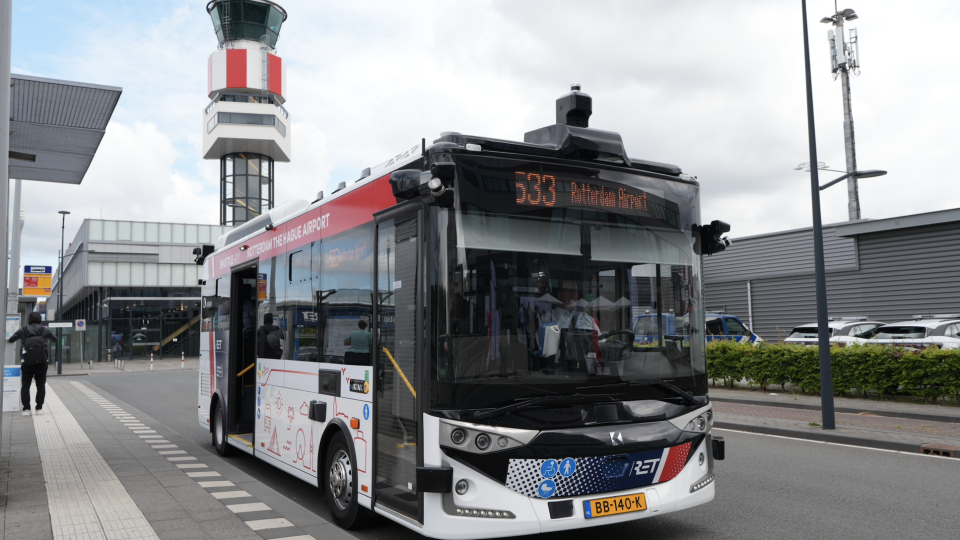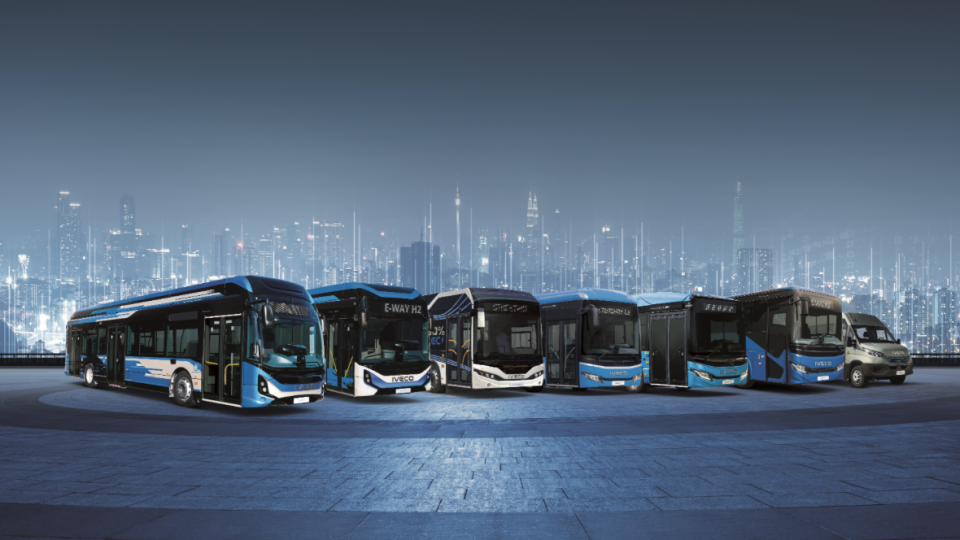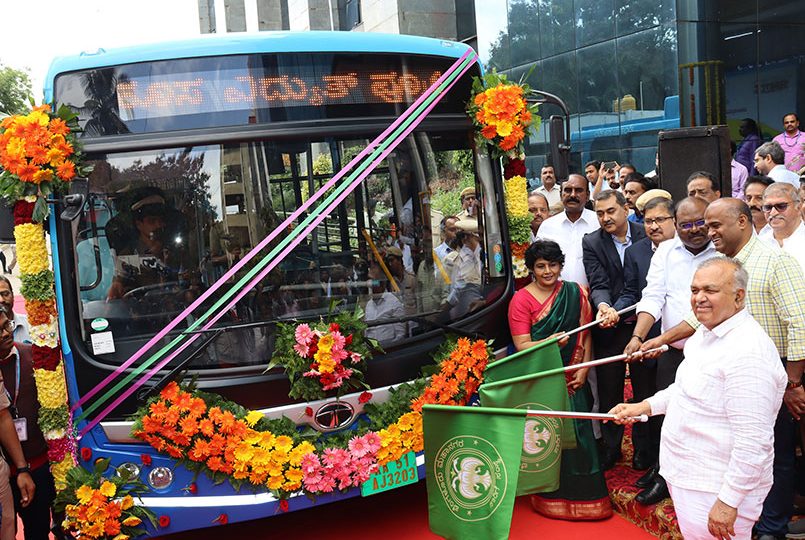A diesel-powered bus to be turned to hydrogen. Transdev’s project in Normandie
A diesel-powered bus (namely an Iveco Crossway) is going to be retrofitted into fuel cell technology in the framework of a pioneeristic project carried out by Transdev Normandie and the Normandy Region, together with an extensive list of partners from the institutional, industrial and academic sectors. The retrofitted bus will be in charge of covering […]
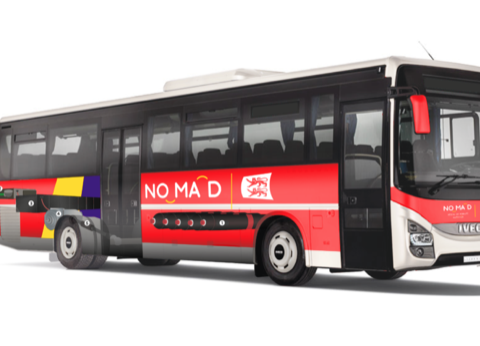
A diesel-powered bus (namely an Iveco Crossway) is going to be retrofitted into fuel cell technology in the framework of a pioneeristic project carried out by Transdev Normandie and the Normandy Region, together with an extensive list of partners from the institutional, industrial and academic sectors.
The retrofitted bus will be in charge of covering 380 km/day on the Evreux-Rouen Express line.
Named “Nomad Car Hydrogène”, it stands out for being, according to Transdev, the world’s first project addressed at retrofitting a diesel-powered bus into a hydrogen-powered one.
Nomad Car Project: a Iveco Crossway to be turned to hydrogen
The project aims to bring a contribution to the creation of a H2 ecosystem in Normandy (north of France). In order to capitalize on the skills present in the region and to make hydrogen one of the building blocks of its energy transition strategy, the Normandy region was the first French region to adopt a strategy of energy transition in October 2006.
In October 2018, the Normandy Region has then been the first French region to adopt a plan to support the hydrogen industry with 15 million euros over three years. The Normandy Hydrogen Plan is made of 9 goals and 46 actions.
Hydrogen buses: more lifespan, more range
Among the goals of the Nomad Car Hydrogen project, there is the one of increasing the lifespan of the bus to 20-25 years (instead of 14 years on average). Also, the project aims to validate a retrofit technique where the combustion engine is replaced with retrofit kit (built according to a hybrid approach – H2/electric power – plus the fuel cell module). Also the diesel tank is to be removed. The hydrogen retrofit is to be developed by the company IBF H2. IAV will be able to contribute its expertise in system safety and electronic interfaces.
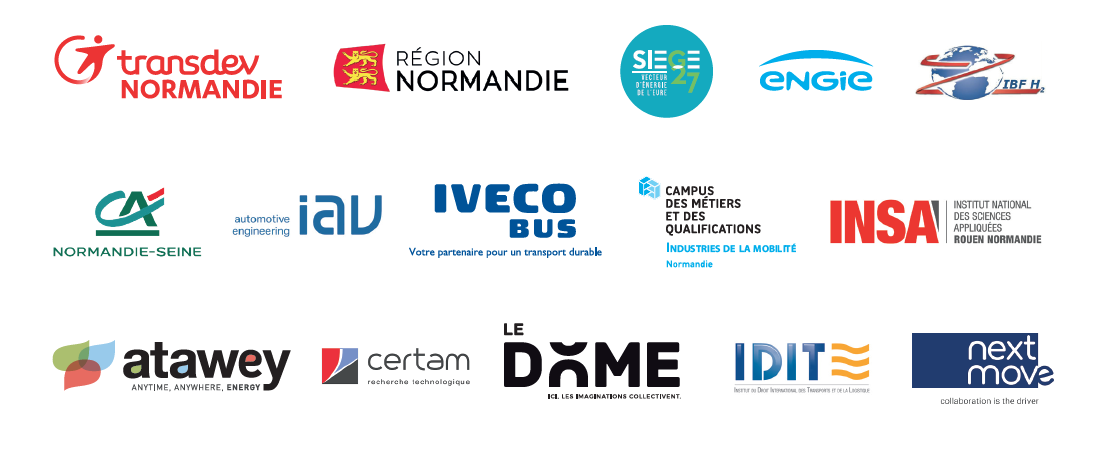
The project has set also a target in terms of range: the bus should be able to cover 450 km on a single refill.
The vehicle’s homologation process is carried out in order to obtain the approval of the Centre National de Réception des Véhicules (CNRV) as required by the Arrêté du 13 mars 2020.
Studies will be also carried out in order to determine the environmental benefits and amount of pollutant emissions over the entire H2 cycle, from the production of hydrogen to its consumption in operation (study from well to wheel).
In the framework of the project, also a hydrogen filling station will be installed: the EAS HyMob du Vieil-Evreux station is expected to have a capacity of 50 kg/day.
Normandy and hydrogen economy
«Innovation is Transdev’s DNA. In addition to training our employees in the jobs of tomorrow, operating electric, hybrid, NGV or biofuel vehicles, and adapting our workshops and depots to the energy transition, we work daily with local authorities to make their vision of the future a reality. By carrying out the Nomad Car Hydrogen project, we are contributing to the emergence of a hydrogen ecosystem in Normandy for sustainable, low-carbon mobility» said Sylvain Picard, Directeur Régional Transdev Normandie.
«The regions play a key role in structuring a hydrogen industry. Normandy, through the Normandie Hydrogen plan, is part of this process. Thus, the Nomad Car Hydrogen project offers Normandy the opportunity to become the first region to allow passenger transport by hydrogen coach on a regular intercity line, thus consolidating the region as a territory of excellence in hydrogen mobility», says Herv Morin, President of the Normandy Region




